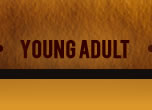I don’t do a lot of these types of posts. I’ve just never really been interested in discussing the nuances of craft online. There are other writers who are MUCH better than I about offering insight on craft and do so with stunning skill in their own little corners of the internet. So I decided a long time ago that if that’s what people wanted to read, they’ll be much happier seeking it elsewhere because I won’t go on about it.
But… Certain things push my buttons and I get to a point where I can stay silent no more.
In the past week, I’ve seen three different online posts besmirching arguably the best known bit of writing advice.  Some writers, curiously, have decided that “write what you know†is BAD writing advice.  It’s so bad, they write entire blog posts about how bad it is. Now that’s bad.
Except it’s not. Not really.
I’ve heard some people say, “It should be ‘write what you want to know….â€
OK. Fine.  That’s cool too. But there’s still nothing wrong with ‘write what you know.’ Nothing. Zip. Nada.
But, Brian…
“If you only wrote what you knew, we’d never have fantasy or speculative fiction books!â€
“If you only wrote what you knew, you’d never explore anything beyond your own little mundane world.â€
Uh huh. Right.
You know, for writers—people devoted to creativity and exploration and turning words on their ears to expand meaning—the people who think these things can be a VERY literal bunch.
Sheesh.
Honestly, folks, there is NOTHING wrong with telling someone “write what you know.†In fact, I think it is EXCELLENT advice for beginning writers.  Some of the first writing assignments you ever get (What I Did On My Summer Vacation) are an extension of this. Expounding on a subject we know best—ourselves—comes naturally to all human beings. I will never be able to carry on a conversation about quantum physics with any authority, but man can I tell you everything I know about DOCTOR WHO. (Which is a lot.)
And it can be great advice for intermediate to advanced writers too….if they’re willing to open their minds a bit. (More on that in a sec.)
All writing advice—every single piece—needs to be taken with a grain of salt. Sometimes, maybe a salt lick. Not all writing advice will work for everyone.
YOU MUST WRITE EVERY SINGLE DAY OR YOU WILL NEVER BE A WRITER!!!!
I’ve been told that many times. Y’know what? I don’t write every single day. I can’t. But I get by just fine on being a writer. (See, if I was gonna make a list of “bad†writing advice, that one would be at the top of my list. Because, see, it doesn’t work for me. But I know it works for other people. And I’m cool with that. And because I know it works for other people, I’m a little hesitant to go around telling everyone what terrible advice it is. Why, yes, I am ready to be granted sainthood.)
So, let’s take a step back and open our minds. Let’s look at “write what you know†and maybe, I don’t know, see it in a more abstract manner (or, at the very least, not so damned literally).
Maybe “write what you know†means:
–write with emotional honesty; imbue your characters with the truths you’ve discovered in your own life
–write in a way that reflects you’ve been paying attention to life here on earth and you’ve developed an opinion or two about the human condition
–write about the life you know so you’ve got a first draft and then go back and make up weird stuff so it’s all cool and everything
Maybe there’s something to this writing what you know thing after all…?
Here’s the thing: readers MUST relate to books. In some way, shape, or form. That doesn’t mean you must make your characters “likeable.†That doesn’t mean you must accurately, painstakingly depict every facet of real life. But at SOME level, readers have to find something to latch on to that they recognize (even in a futuristic world where spittle is currency and people communicate by stabbing each other in Morse code).
That’s where you’re writing what you know. You’re writing something to which readers can relate.
And you know what? If you still don’t want to do that… fine. Go, you.
Which brings me back to my point: not all writing advice works for everyone (especially if you insist on taking it at absolute face value).  “Write what you know†doesn’t work for you because you want to put a stick up your bum and believe it means you can’t write about spaceships and other things with which you have no personal experience? That’s your prerogative. But just remember that someone else might be able to embrace those words and find the soul of what they’re trying to say when they open up their mind to what “write what you know†could mean. So maybe lay off the criticism of advice that many, many, MANY writers have used to write some really wonderful things.
If you disagree, say so below. I can take it.
(PS—Also, do the people who rail against this advice ever stop to realize that most non-fiction relies on writing what one knows? Seems to me there are a lot of short sighted fiction writers who are ready to sully the good name of a really EXCELLENT piece of advice because they can’t see beyond their own fictional constructs. I have YET to hear a memoirist decry “write what you know.â€Â Just sayin’…)
(PPS–Also, if you tell someone ‘write what you know’ and they do… You know what? You just got them writing. Give yourself a cookie.)







